Israeli-Egyptian General Armistice Agreement, Excerpts, 1949
One of four agreements Israel signed in 1949 with Arab neighbors, it does not end “state of war,” between Israel and Arab states. No treaty is signed until 1979.
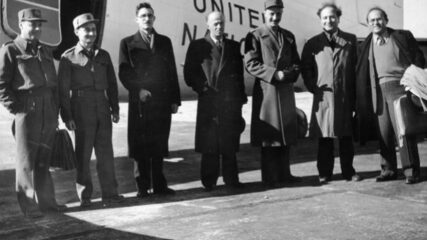
One of four agreements Israel signed in 1949 with Arab neighbors, it does not end “state of war,” between Israel and Arab states. No treaty is signed until 1979.

Sharett gives an overview of Israeli foreign policy, key issues, and relationships with UN and Arab states.
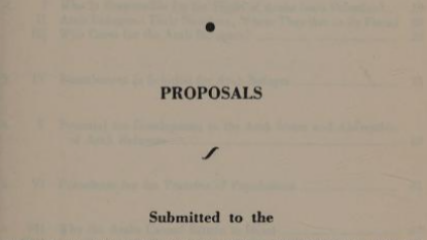
This report submitted to the United Nations at the end of 1951 notes that “some one million Jews have become the victims of accelerated antiSemitism” since 1948 in the Muslim countries of the Arab League and North Africa, “communities which have existed for thousands of years.” The report analyzes the situation for Jews overall and explains restrictions and oppressive measures country by country.

With crisp analysis, Haganah Commander Yigal Allon, later a Prime Minister of Israel attributes Israel’s successes to multiple factors including the absence of a centralized Arab command, limited Arab military training, underestimating the potential fighting capabilities of local Arabs, and Israel’s success in integrating its citizens into the war effort.
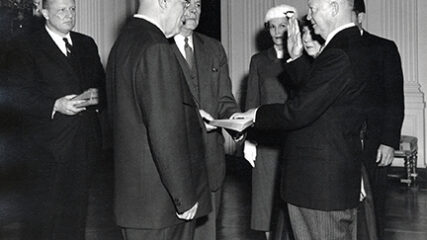
Further reinforcing the Truman Doctrine, the US President promises military or economic aid to any Middle Eastern country resisting Communist aggression.

With tensions on its borders, Eshkol tries to reassure Israeli public. Instead he gives a “painfully faltering” speech. Popular and party disgruntlement follow, opening the way for Eshkol to turn over the Defense Ministry two days later to General Moshe Dayan.

Nasser asserts that the conflict with Israel is not over access to the Gulf of Aqaba but the very existence of Israel; Egypt’s foes are Britain and the US that support Israel.

A detailed outline of events that led to the June 1967 war.
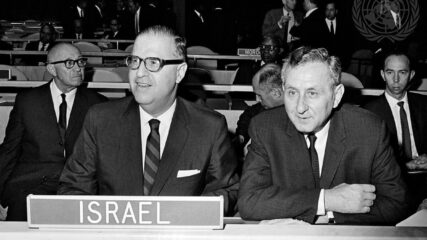
Following the conclusion of the June 1967 War, the Israeli government sent word to Egypt and Syria seeking peace plan that was intended to jumpstart a peace process with Israel’s belligerent neighbors, Egypt and Syria. The messages were sent through the US, but no response was apparently received.
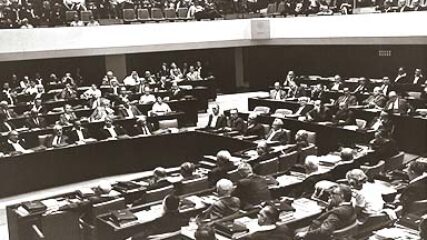
After the June 1967 war, the Israeli government sent word through the United States to Egypt and Syria seeking to jump-start a peace process. Apparently no response was received.
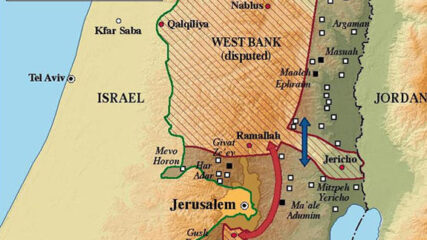
July 26, 1967: The Alon Plan reflects a response to Israel’s pre-1967 war border vulnerability seeking a future west bank arrangement that is not a strategic/geographic threat to Israel and its coastal plain population centers.

Arab states declare “no peace, no negotiation, no recognition” with Israel after their collective defeat in the June 1967 War.
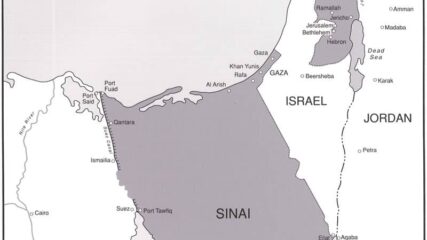
The Resolution calls for unspecified Israel withdrawal from territories in return for right of all states to live in peace. It does not call for full withdrawal. It is the basis of Egyptian (1979) and Jordanian (1994) Treaties with Israel, and PLO (1993) recognition of Israel.

Without any consultation with Jerusalem, Israel rejects US proposal for full withdrawal.

One of Israel’s greatest writers, Natan Alterman, reminded Israel’s accusers in 1969 that well into the 20th century the Palestinians did not even understand themselves as a separate people with a distinctive national identity marking them off from other Arabs. His argument, if framed as a question, might be formulated along these lines: If no one else, not least the Palestinians’ ancestors, saw their distinctive nation in Ottoman Palestine, how can the Zionists be blamed for not seeing one either? Thus, to fault the Zionists for failing to see what was not yet visible to anyone else, including the Palestinians, is to fault them not for suffering from blindness, but for lacking clairvoyance.

Foreign Relations of the United States 1969-1976, Vol. 25: Arab-Israeli Crisis and War, 1973, published in 2011 and running more than 1,200 pages in covering all of 1973 and the first two weeks of 1974….
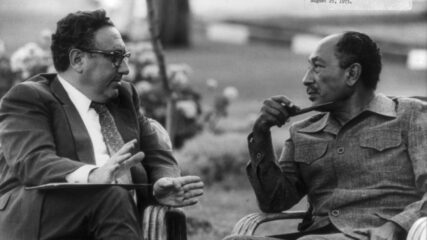
October 6, 2023, was the 50th anniversary of the outbreak of the October 1973 war. Six months prior, Egyptian President Sadat sent his national security adviser to meet with Secretary of State Kissinger to determine whether the U.S. would engage Egypt and Israel in serious mediation for a Sinai agreement, or a series of them, all focused on Israeli withdrawal and gradual acceptance of Israel. Kissinger did not take Sadat’s overtures seriously. Would American action then have avoided the October 1973 war? All informed analyses say no.

With less than three dozen Israeli settlements in the territories taken in the June War, the proposal is not for a vast settlement increase, but for economic, infrastructure, and industrial development of the areas.
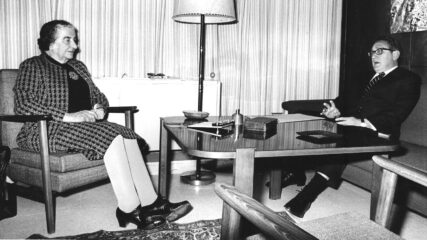
In carrying out research in the 1990s for Heroic Diplomacy: Sadat, Kissinger, Carter, Begin and the Quest for Arab-Israeli Peace, Routledge, 1999, I undertook 84 interviews with individuals who participated in the diplomacy.
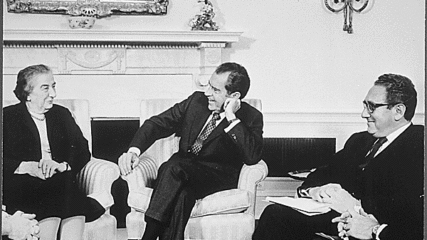
The October 1973 war broke the logjam over whether diplomacy could unfold to kick off Arab-Israeli negotiations. Sadat used the 1973 war as an engine to harness American horsepower. In that he succeeded because U.S. Secretary of State Kissinger saw Sadat’s leaning to Washington not only as a chance to begin useful negotiations, but also of great significance to weaning the Egyptian president away from Moscow.

U.S. Secretary of State Kissinger failed to persuade Syrian President Assad to attend the December 1973 Geneva Middle East Peace Conference. Assad saw the proposed conference, which it was, a ruse to cover up a “pre-cooked” Israeli-Egyptian arrangement. Assad wanted no part of implicitly supporting any agreement where Israel’s legitimacy might be enhanced.

The US mediates an agreement separating forces in Sinai after the 1973 War; Egyptian and Israeli
generals will negotiate additional details.

The US promises to implement an Egyptian-Israeli disengagement agreement and have the Suez Canal cleared. Israel sees eventual repopulation of Suez Canal cities as a sign that Egypt will not go to war again soon.

On Golan Heights, Israel agrees to limited withdrawal; UN places forces between Syrian and Israeli armies. With few exceptions this border remains almost totally quiet for more than forty years.